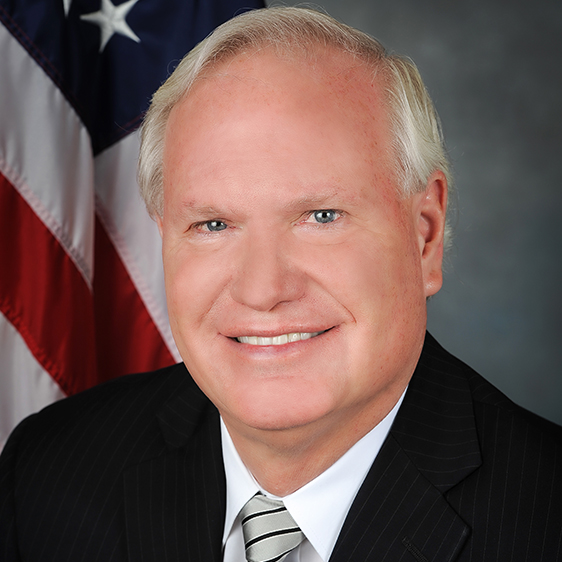|
Assembly Actions -
Lowercase Senate Actions - UPPERCASE |
|
|---|---|
| Feb 12, 2018 |
referred to cities |
Senate Bill S7717
2017-2018 Legislative Session
Sponsored By
(D) Senate District
Archive: Last Bill Status - In Senate Committee Cities Committee
- Introduced
-
- In Committee Assembly
- In Committee Senate
-
- On Floor Calendar Assembly
- On Floor Calendar Senate
-
- Passed Assembly
- Passed Senate
- Delivered to Governor
- Signed By Governor
Actions
2017-S7717 (ACTIVE) - Details
- See Assembly Version of this Bill:
- A1134
- Current Committee:
- Senate Cities
- Law Section:
- New York City Administrative Code
- Laws Affected:
- Add §12-140, NYC Ad Cd
- Versions Introduced in Other Legislative Sessions:
-
2011-2012:
A695
2013-2014: A3524
2015-2016: A62
2019-2020: S5650, A314
2021-2022: S5536, A457
2023-2024: S4580, A1435
2025-2026: A1213
2017-S7717 (ACTIVE) - Summary
Enacts the "New York city teleworking expansion act"; provides that each agency shall establish a policy and program to allow employees to perform all or a portion of their duties through teleworking to the maximum extent possible without diminished employee performance; defines the term "telework" to mean to perform normal and regular work functions on a workday that ordinarily would be performed at the agency's principal location at a different location, thereby eliminating or substantially reducing the physical commute to and from such agency's principal location.
2017-S7717 (ACTIVE) - Sponsor Memo
BILL NUMBER: S7717
SPONSOR: AVELLA
TITLE OF BILL:
An act to amend the administrative code of the city of New York, in
relation to enacting the "New York city teleworking expansion act"
PURPOSE:
To reduce congestion in Manhattan by increasing teleworking in New York
City agencies.
SUMMARY OF PROVISIONS:
The bill amends the New York City Administrative Code by adding section
12-140 to require New York City agencies to establish teleworking
programs.
JUSTIFICATION:
2017-S7717 (ACTIVE) - Bill Text download pdf
S T A T E O F N E W Y O R K
________________________________________________________________________
7717
I N S E N A T E
February 12, 2018
___________
Introduced by Sen. AVELLA -- read twice and ordered printed, and when
printed to be committed to the Committee on Cities
AN ACT to amend the administrative code of the city of New York, in
relation to enacting the "New York city teleworking expansion act"
THE PEOPLE OF THE STATE OF NEW YORK, REPRESENTED IN SENATE AND ASSEM-
BLY, DO ENACT AS FOLLOWS:
Section 1. Short title. This act shall be known and may be cited as
the "New York city teleworking expansion act".
§ 2. Legislative findings. The legislature hereby finds and declares
that the health and safety of the population living in and around the
densely populated New York city metropolitan region is a matter of state
concern, as is the economic vitality and the effectiveness of mass tran-
sit in that region, all of which are threatened by the amount of traffic
congestion inside of, and into, New York city, and the overcrowded
buses, subways and railroads within the region. Traffic congestion is
particularly harmful to the mass transit bus systems run by the Metro-
politan Transportation Authority, creating delays and hindering the
growth of essential surface mass transportation systems, and the entire
mass transit system suffers from severe overcrowding. The negative
impact of traffic congestion in New York city on the health, economy and
mass transit systems of the downstate region, as well as the overcrowd-
ing of the region's mass transit systems, were established at legisla-
tive hearings in the spring of 2007, as well as during the hearings and
reports of the legislatively created New York City Traffic Mitigation
Commission. During these hearings, it was established that a very large
number of New York city employees drive to work both from points within
New York city and without, that New York city lacks a working and
adequate telecommuting program for its employees, and that an effective
telecommuting program would significantly reduce the number of such
employees driving to work. Likewise, a telecommuting program for New
York city employees would also allow employees who use mass transit to
work from home, thereby alleviating the current overcrowding in the
region's mass transit systems. Such a program as established by this
legislation would address the state's concern that the health, safety,
EXPLANATION--Matter in ITALICS (underscored) is new; matter in brackets
Comments
Open Legislation is a forum for New York State legislation. All comments are subject to review and community moderation is encouraged.
Comments deemed off-topic, commercial, campaign-related, self-promotional; or that contain profanity, hate or toxic speech; or that link to sites outside of the nysenate.gov domain are not permitted, and will not be published. Attempts to intimidate and silence contributors or deliberately deceive the public, including excessive or extraneous posting/posts, or coordinated activity, are prohibited and may result in the temporary or permanent banning of the user. Comment moderation is generally performed Monday through Friday. By contributing or voting you agree to the Terms of Participation and verify you are over 13.
Create an account. An account allows you to sign petitions with a single click, officially support or oppose key legislation, and follow issues, committees, and bills that matter to you. When you create an account, you agree to this platform's terms of participation.
